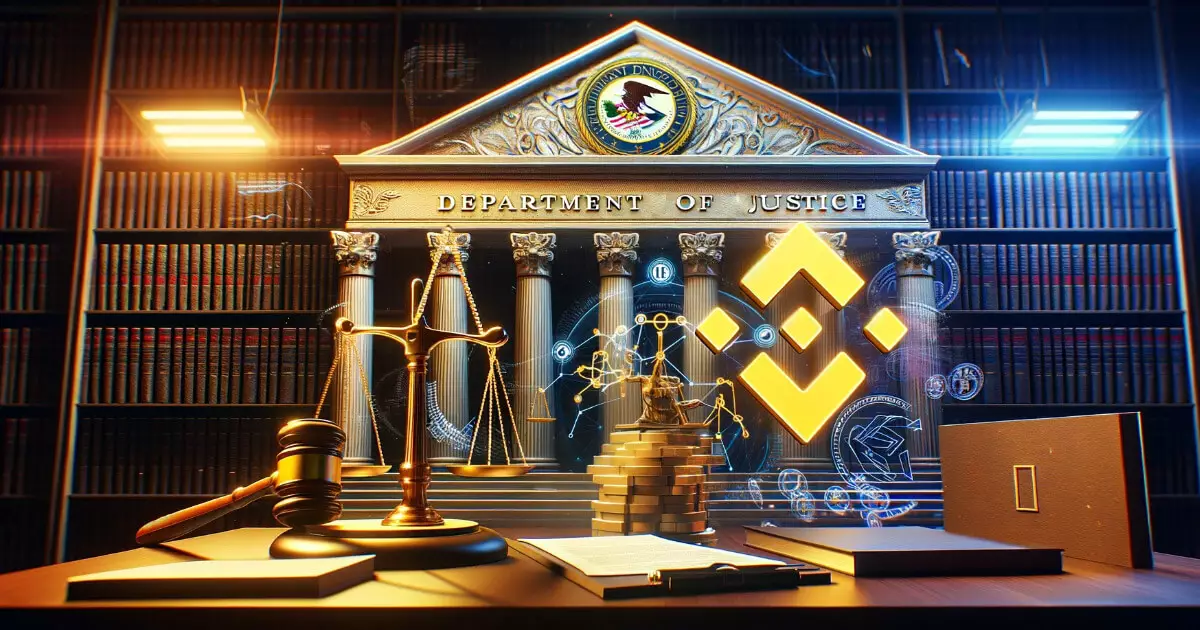Binance has taken decisive action in response to the ongoing case initiated by the U.S. Securities and Exchange Commission (SEC). On December 12th, the cryptocurrency exchange submitted two crucial filings that aim to dismiss the case against the company and its former CEO, Changpeng Zhao. These filings make a strong argument against the SEC’s claims and shed light on various alleged inaccuracies, including lack of relevance and jurisdiction.
Challenging the SEC’s Allegations
In its first filing, Binance contests the SEC’s assertion that certain tokens and services offered by the platform are securities or investment contracts. The company argues that the SEC has not provided sufficient evidence to support these claims. Additionally, Binance highlights that the SEC’s accusations relating to its BNB token are time-barred, as the offerings occurred outside of the United States. The filing also challenges the SEC’s attempt to apply securities law extraterritorially to Binance.com transactions such as BNB Vault and Simple Earn, arguing that this is not permissible.
Fair Notice and Personal Jurisdiction
Another significant aspect of the filing is Binance’s argument that the SEC failed to provide fair notice about its securities claims, which the company believes warrants the dismissal of the lawsuit. Furthermore, Binance asserts that the claims against Zhao should be dismissed due to a lack of personal jurisdiction. According to the defense lawyers, Zhao’s role in controlling Binance is not sufficient grounds for jurisdiction, and the SEC has not adequately demonstrated that Zhao had relevant contact with U.S. users.
Binance and Zhao reached plea deals with the Department of Justice (DOJ) and other U.S. government agencies. Although separate from the SEC case, the securities regulator sought to have these plea deals considered in the proceedings. Binance strongly objected to this approach in its filing, arguing that the SEC’s notice failed to establish the relevance of the resolutions with the DOJ and the Financial Crimes Enforcement Network (FinCEN) to the defective claims against Binance and Zhao. The company maintains that the SEC has not amended its complaint and that judicial notice is not a substitute for proper amendment.
Binance’s filing reiterates its lack of jurisdiction defense, applying both to the company’s entities and to Zhao personally. The document emphasizes that the plea agreements only indicate violations of the Bank Secrecy Act and do not prove that Binance or Zhao received fair notice regarding the other securities and exchange acts in question. Furthermore, in the case of Zhao, Binance argues that personal jurisdiction differs in criminal and civil cases, indicating that jurisdiction may exist in the DOJ proceedings but not in the SEC case.
Binance’s filing presents compelling arguments to dismiss the SEC case, focusing on the lack of relevance and jurisdiction. The company challenges the SEC’s claims regarding tokens and services, contests the timeliness of certain allegations, and objects to the SEC’s attempt to introduce plea deals as evidence. Binance firmly believes that the case should be dismissed entirely, emphasizing the importance of fair notice and the absence of personal jurisdiction. As the legal proceedings unfold, the outcome will have far-reaching implications for the cryptocurrency industry and the regulatory landscape surrounding it.

